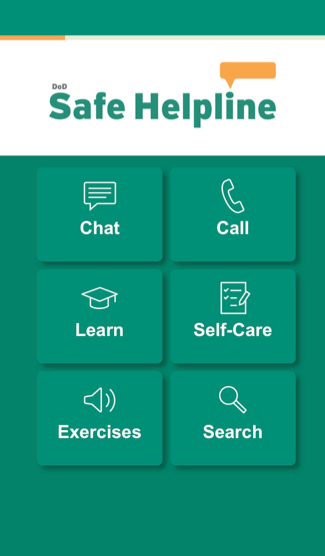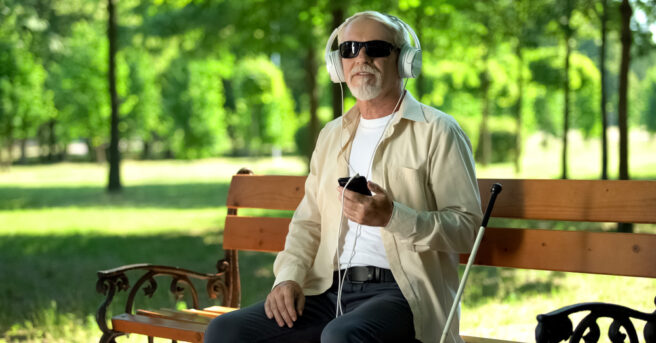NATIVE AMERICAN HERITAGE
EDUCATION

In celebration of Native American Heritage Month, the National Constitution Center is hosting a series of scholar talks and activities highlighting the history of American Indians, tribal governments, and their relationship to the U.S. Constitution and American democracy.
Scholar Talk: American Indian Influence on the Constitution and the Founding Fathers Featuring Robert J. Miller
Thursday, November 17 at 10 p.m. PST, Kirby Auditorium and Livestreamed

Join Robert J. Miller for a conversation about American Indians political theories and how their governments had a profound effect on many of the Founding Fathers, shaping specific provisions in the U.S. Constitution. The framers were influenced by both “positive” aspects of tribal governance and political science that they were familiar with and adopted into the Constitution, and they were also influenced by what can be called the “negative” aspects of the threats posed by the American Indian tribes to the new United States. Many of these effects are reflected in provisions in our Constitution. This talk examines how Indigenous theories of government affected our Founding Fathers in drafting the U.S. Constitution.
Robert J. Miller is a professor at the Sandra Day O’Connor College of Law at Arizona State University where he is also the Willard H. Pedrick Distinguished Research Scholar and the director of the Rosette LLP American Indian Economic Development Program. He is the chief justice of the Pascua Yaqui Tribe Court of Appeals and an appellate judge in other tribal courts. He graduated from Lewis & Clark Law School in 1991 and then clerked for Judge Diarmuid O’Scannlain of the U.S. Court of Appeals for the Ninth Circuit in 1991-92. Miller is a citizen of the Eastern Shawnee Tribe. He was elected to the American Philosophical Society in 2014, the oldest learned society in the United States.
Scholar Talk: Native Americans’ Fight for Citizenship and Sovereignty Featuring Paul C. Rosier
Friday, November 25 at 10 p.m. PST, Kirby Auditorium and Livestreamed

Dr. Paul C. Rosier, professor of history at Villanova University, will explore the Native Americans’ fight for American citizenship and tribal sovereignty, focusing on their extraordinary efforts to both protect their autonomy and secure the civil rights afforded American citizens: a dual citizenship codified in the 1924 Indian Citizenship Act. His presentation will highlight native people’s vision of an inclusive country that lives up to the ideals expressed in the Declaration of Independence and the Constitution, championing via military service, activism, and political writings their belief in a multi-racial and multi-cultural America that honored its legal obligations as it assumed international prominence in the 20th century.
Paul C. Rosier received his Ph.D. in American History from the University of Rochester in 1998. He currently serves as professor of history at Villanova University, where he teaches Native American history, American environmental history, global environmental history, and 20th century American history. He also serves as the director of the Albert Lepage Center for History in the Public Interest at Villanova. He previously held the inaugural Mary M. Birle Chair in American History (2016-2022) and served as department chair (2013-2016). In 2001, he published his first book, Rebirth of the Blackfeet Nation, 1912-1954; he co-edited the 2006 volume Echoes from the Poisoned Well: Global Memories of Environmental Injustice. In 2009, Harvard University Press published his Serving Their Country: American Indian Politics and Patriotism in the Twentieth Century, which won the 2010 American Indian National Book Award. He has published numerous essays on Native American topics, including three articles in The Journal of American History. Reflecting his commitment to public-facing work, he has published several blog posts on Native American political issues in Hindsights and the History News Network. He is in the final stages of two projects: an edited volume on environmental justice in North America; and a monograph on Native Americans’ political history, “The American Way of Life”: Native Americans’ Fight for Sovereignty and Citizenship.
Native Americans and the Constitution Town Hall Video (YouTube)
In celebration of Native American Heritage Month, join experts Maggie Blackhawk of the New York University School of Law; Donald Grinde, Jr. of the University at Buffalo and co-author of Exemplar of Liberty: Native America and the Evolution of Democracy; Gregory Dowd of the University of Michigan; and Woody Holton of the University of South Carolina and author of Liberty Is Sweet: The Hidden History of the American Revolution, for a conversation exploring the influence of Indigenous people and tribal governments on the U.S. Constitution and American democracy, from before the Revolution to today. Jeffrey Rosen, president and CEO of the National Constitution Center, moderates.
CELEBRATIONS

Native Veterans Procession and Dedication Ceremony
Veterans Day, November 11, 2022 and up live stream.
Join the museum in honoring the exceptional military service of Native Americans in a formal dedication of the National Native American Veterans Memorial in Washington, DC. The dedication and processional will honor American Indian, Alaska Native, and Native Hawaiian veterans and their families. Use this link to Regester and View Live Stream
WEEKEND CELEBRATION
Saturday and Sunday, Nov. 12–13 | Washington, D.C.
All are welcome to join as the museum honors the military service of Native American, Native Hawai’ian and Alaska Native veterans, Friday, Nov. 11. The Native veterans’ procession and dedication ceremony will take place beginning at 2 p.m. on the National Mall as part of a three-day celebration featuring hands-on activities, films, performances, and a veterans hospitality suite. The procession and dedication will be livestreamed. For more information about the weekend program, visit AmericanIndian.si.edu/visit/washington/nnavm-dedication
2022 Native Cinema Showcase
Nov. 18–25
Live Streaming
The National Museum of the American Indian’s Native Cinema Showcase is an annual celebration of the best in Indigenous film. Embracing their communities’ oral histories, knowledge and ancestral lands, Indigenous filmmakers are seeking guidance from the past and envisioning new paths for the future. The showcase provides a unique forum for engagement with filmmakers from Indigenous communities throughout the Western Hemisphere and Arctic.
The online program includes a total of 35 films (six features and 30 shorts) representing 30 Native nations in eight different countries: US, Canada, New Zealand, Mexico, Guatemala, Ecuador, Colombia and Sweden. There are 10 Indigenous languages spoken in the films. Genres include documentaries, music videos, kid-friendly shorts, films in Indigenous languages and more.
Use this Link to Attend Online
Native Cinema Showcase is made possible by the New York State Council on the Arts with the support of Governor Kathy Hochul and the New York State Legislature

Native American Boarding Schools as a Tool of U.S. Empire
Friday, November 19, 2021
10:00am EST/ 7:00 am PST
University of Michigan Alumni Association
“The Alumni Association is sponsoring the November Clements Bookworm. The Clements Bookworm is a webinar series in which panelists discuss history topics. In this episode, Dr. Veronica Pasfield discusses her continuing research to understand the full purpose and force of federal Indian boarding schools. She asserts that the creation story of Carlisle Indian School must be rooted in missionary schools founded to prepare Kanaka Maoli for wage labor on their own Hawaiian homelands as well as in the captivity of Native children in the Southwest by a U.S. Army desperate to bring about the submission of Western tribes by any means necessary. While administrators touted assimilation as a benevolent enterprise, the archives show that Indian children were used as hostages to secure the extraction of tribal resources, and ‘schools’ were used as an instrument for transforming indigenous peoples into a permanent underclass in their own homeland.”
Celebrate! with Wampanoag Nation Singers & Dancers
Saturday, November 20, 2021
11:30 AM – 12:30 PM EST
Hosted by the John F. Kennedy Presidential Library and Museum
“Join the Wampanoag Nation Singers and Dancers as they share stories of both their history and modern culture in a performance that culminates with a dance in honor of Native American Heritage Month. During this virtual program from wherever you are, the whole family can join in learning new movements and words for interactive elements. The Celebrate! series, appropriate for family audiences and children ages 5 and up, highlights America’s rich cultural diversity through the arts. This program is tied directly to President and Mrs. Kennedy’s concern for and support of the arts and culture in a democratic society. Thanks to generous support from the Martin Richard Foundation and the Mass Cultural Council all performances are free.”
Cultural Representation in Education
Tuesday, November 23, 2021
6:00 pm – 7:00 pm CST
Hosted by the Mitchell Museum
“Join us to learn about Native American history, culture and traditions first-hand from the perspectives of Indigenous educators… Waqnahwew Benjamin Grignon (Menominee Indian Tribe of Wisconsin) is a teacher of traditional Menominee arts. He represents the Menominee Nation and approaches culturally-responsive education by using Menominee Language, Culture, and art to promote and preserve tribal history as a pathway for future generations and positively influence the education of the youth in his community. He is the 2019 Wisconsin High School Teacher of the Year and the recipient of the 2020 National Education Association’s Leo Reano Memorial Human and Civil Rights Award. Benjamin will be speaking about his journey to becoming a teacher at the Menominee Indian High School. He will be sharing the lessons he has learned over his 14 years of teaching experience and how this journey influences Menominee education by helping to design the Kaehkēnawapahta͞eq Menominee Immersion Charter School.”
Kyle T. Mays — An Afro-Indigenous History of the United States
Monday, November 29, 2021
6:00 PM – 7:00 PM
Hosted by the Boston Public Library
“Join us for an online talk with Kyle T. Mays, author of An Afro-Indigenous History of the United States, the first intersectional history of the Black and Native American struggle for freedom in our country that also reframes our understanding of who was Indigenous in early America…
Beginning with pre-Revolutionary America and moving into the movement for Black lives and contemporary Indigenous activism, Afro-Indigenous historian Kyle T. Mays argues that the foundations of the US are rooted in antiblackness and settler colonialism, and that these parallel oppressions continue into the present. He explores how Black and Indigenous peoples have always resisted and struggled for freedom, sometimes together, and sometimes apart… Mays compels us to rethink both our history as well as contemporary debates and to imagine the powerful possibilities of Afro-Indigenous solidarity.”
—
Facing History and Ourselves invites educators to explore our interview with Facing History Canada in which we discuss strategies for teaching settler colonialism beyond Canada.
ARTS AND CULTURE
Native American Worldview
Native American Worldview: A Conversation between Dr. Tink Tinker and Dr. Lisa Dellinger, Tinker Visiting Professor
In well-meaning white (mostly) institutions, it has become a standard practice that land acknowledgment is invoked in every event, and the discussion about or the demand for LandBack is publicly made.
Many assume that such is a step toward improving white institutions, solving settler colonialism, and reconciling with the Native people. However, Drs. Tinker and Dellinger warn that such discussions can deteriorate into sessions alleviating christian guilt, and maintaining the status quo. Dr. Tinker has argued that “the Native worldview and christianity cannot be reconciled because they were never “conciled” in the first place, so there is no state of conciliation to go back to (reconciliation).” Then all of us, the settler population, wonder what we can do?
This conversation between Drs. Tinker and Dellinger offers you an opportunity to deep listening to them, and invites you to learn from them with cultural humility first.”
Use this Link to Attend on ZOOM
Everything You Think You Know About Native Americans is Wrong (and Why Thats Not Your Fault)
In honor of Native American Heritage Month, the American Family Insurance DreamBank invites you to an enlightening presentation around common misperceptions of Native Americans with Rebecca Nagle, an award-winning advocate, writer, podcaster and citizen of the Cherokee Nation. Drawing from her extensive research, Rebecca will guide you in confronting any personal and societal ignorance and institutional bias that may exist. You’ll leave with a better understanding on how to create a more inclusive, empathetic culture in your personal and professional life — while advocating for Native American culture and progress.
Use this Link to Attend On Zoom
Native American Art and Culture
Thursday, November 10 8 PM to 9 PM PST
Join us for an online presentation on Native American Art and Culture – brought to you by Kent State Geauga and the Smithsonian Art Museum.
Join Kent State Geauga and the Smithsonian American Art Museum (SAAM) for an interactive presentation on Native American Art and Culture. “American Indians are part of the past, present, and future of the United States.” This presentation will “explore histories and cultures of some American Indians as captured by both Native and non-Native artists” (SAAM).
Use this Link to Attend On Zoom
RESCOURCES

Native American Web Sites
Related Native American Web Sites Information from sites selected for those interested in American Indians/Alaskan Natives. Includes demographics of state and federally recognized tribes within the United States, population figures, tribal contact information, tribal home pages and more.
Native American Web Sites
Related Native American Web Sites Information from sites selected for those interested in American Indians/Alaskan Natives. Includes demographics of state and federally recognized tribes within the United States, population figures, tribal contact information, tribal home pages and more.
Affiliated Tribes of Northwest Indians (ATNI) – ATNI is a nonprofit organization representing 54 Northwest tribal governments from Oregon, Idaho, Washington, southeast Alaska, Northern California and Western Montana. ATNI is an organization whose foundation is composed of the people it is meant to serve — the Indian peoples.
Alaska Inter-Tribal Council – The Alaska Inter-Tribal Council is a statewide, tribally-governed non-profit organization that advocates in support of Tribal governments throughout the state.
Alaska Native Knowledge Network – is designed to serve as a resource for compiling and exchanging information related to Alaska Native knowledge systems and ways of knowing.
American Indian Lands Environmental Support Project – The American Indian Lands Environmental Support Project (AILESP) was developed by EPA’s Office of Enforcement and Compliance Assurance (OECA). AILESP integrates and assesses recent multi-media point-source releases, the potential impacts of contaminants, and recent compliance and enforcement histories for facilities located on and within five kilometers of Tribal areas.
American Indian Law Review – The purpose of the American Indian Law Review, a specialized law review devoted exclusively to Indian law, will be to provide a forum for scholarly writing in the areas of the law that particularly affect American Indians. . . . A distinguishing feature of the Review will be that the discussion will not be limited to any particular viewpoint. In fact, the Review will encourage expression of differing viewpoints concerning American Indian legal problems.
American Indian Science and Engineering Society (A.I.S.E.S.) – The American Indian Science & Engineering Society (AISES) is a national, nonprofit organization which nurtures building of community by bridging science and technology with traditional Native values. Through its educational programs, AISES provides opportunities for American Indians and Native Alaskans to pursue studies in science, engineering, business and other academic arenas.
Bristol Bay Native Corporation (BBNC) – Strategic Intent 1997 – 2005 Mission Enriching our Native way of life. Vision To be a corporation that protects the past, present, and future of the Natives from Bristol Bay. Goals To double dividends within eight years (by 2005). To protect Native use of land and water in Bristol Bay. Values To protect the best interests of our shareholders. To maintain or grow total dividends paid annually by providing a solvent corporation. To celebrate and preserve the Alaskan Native culture and linkage with the land that provides the basis for our style of life.
Bureau of Indian Affairs (BIA) – DOI, Interior The Bureau of Indian Affairs’ mission is to enhance the quality of life, to promote economic opportunity, and to carry out the responsibility to protect and improve the trust assets of American Indians, Indian tribes and Alaska Natives. We will accomplish this through the delivery of quality services, maintaining government-to-government relationships within the spirit of Indian self-determination
Center for World Indigenous Studies (CWIS) – The Underlying Principle Guiding CWIS is: Access to knowledge and peoples’ ideas reduces the possibility of conflict and increases the possibility of cooperation between peoples on the basis of mutual consent. By democratizing relations between peoples, between nations and states, the diversity of nations and their cultures will continue to enrich the world.
Cherokee Nation – Official site of the Cherokee Nation.
Chinook Nation – Official site of the Chinook Indian Tribe
Code Talk – CodeTalk is a federal, inter-agency, Native American Web site designed specifically to deliver electronic information from government agencies and other organizations to Native American communities.
Coeur d’Alene Tribe – Because there was always a commitment to the future, so will there always be a commitment to the past. The modern Coeur d’ Alene Tribe is the sum of uncounted centuries and of untold generations. .
Confederated Salish and Kootenai Tribes – The Confederated Salish and Kootenai Tribes are comprised of the Bitterroot Salish, the Pend d’Oreille and the Kootenai tribes. The Flathead Reservation of 1.317 million acres in northwest Montana is our home now but our ancestors lived in the territory now known as western Montana, parts of Idaho, British Columbia and Wyoming. This aboriginal territory exceeded 20 million acres at the time of the 1855 Hellgate Treaty.
Confederated Tribes of the Colville Reservation – Official site of the Confederated Tribes of the Colville Reservation
Confederated Tribes of the Umatilla Indian Reservation – The Cayuse, Umatilla and Walla Walla Tribes make up the Confederated Tribes of the Umatilla Indian Reservation.
Cook Inlet Tribal Council – Located in Anchorage, Alaska, CITC administers programs to perpetuate and enhance the cultural heritage, social and economic well-being of Alaska Natives and American Indians residing in the Cook Inlet region of Alaska.
Coquille Indian Tribe – Preserving our past with the technology of the future. This is the starting point for you to explore the dynamic facets of the Coquille Indian Tribe.
Cow Creek Band of Umpqua Tribe of Indians – Official site of the Cow Creek Band of Umpqua Tribe of Indians
CRITFC – Columbia River Inter-Tribal Fish Commission – CRITFC is made up of four Columbia Basin tribes. These tribes are the Confederated Tribes and Bands of the Yakama Nation, the Confederated Tribes of the Warm Springs Reservation of Oregon, the Confederated Tribes of the Umatilla Indian Reservation, and the Nez Perce Tribe.
Denali Commission of Alaska – Introduced by Congress in 1998, the Denali Commission is an innovative federal-state partnership designed to provide critical utilities, infrastructure, and economic support throughout Alaska.
Index of Native American Resources – American Indians Index of Native American Resources on the Internet.
Indian Country Today – The on-line version of Indian Country Today does not include the full content – articles, advertisements, notices and listings – that appear only in our newsprint edition. For complete access to America’s Leading Indian News source, subscribe to Indian Country Today!
Indian Health Service – The Indian Health Service (I H S) is an agency within the U S Dept. of Health and Human Services and is responsible for providing federal health services to American Indians and Alaska Natives.
Indian Reservation Roads Program (IRR) – The IRR Program is a jointly administered program by the Federal Highway Administration and by the Bureau of Indian Affairs through an Interagency Memorandum of Agreement as established by Title 23 U.S.C. Section 204.
Indianz.Com – Your Internet Resource Our Mission Welcome to Indianz.Com, Your Internet Resource. Our mission is to provide you with quality news, information, and entertainment from a Native American perspective.
Inter-Tribal Council of Nevada – The Inter-Tribal Council of Nevada, Inc. (ITCN) was incorporated as a non-profit organization under Nevada State Law on February 23, 1966. ITCN is a Tribal organization serving the member reservations and colonies in Nevada. The Governing Body of ITCN consists of an Executive Board, composed of Tribal Chairman from each of these Tribes.
Intertribal Timber Council – The ITC is a nation-wide consortium of Indian Tribes, Alaska Native Corporations, and individuals dedicated to improving the management of natural resources of importance to Native American communities.
Kalispel Tribe of Indians – The Kalispel Tribe of Indians’ official website.
Kappler’s Indian Affairs: Laws and Treaties – Indian Affairs: Laws and Treaties, compiled and edited by Charles J. Kappler, is an historically significant, seven volume compilation of U.S. treaties, laws and executive orders pertaining to Native American Indian tribes.
National Congress of American Indians (NCAI) – The National Congress of American Indians (NCAI), founded in 1944, is the oldest, largest and most representative national Indian organization serving the needs of a broad membership of American Indian and Alaska Native governments. Our founding members stressed the need for unity and cooperation among tribal governments and people for the security and protection of treaty and sovereign rights.
National Indian Education Association (NIEA) – The National Indian Education Association (NIEA)was founded in 1969 to give American Indians and Alaska Natives a national voice in their struggle to improve access to educational opportunity. NIEA is the largest and oldest Indian education organization in the nation and strives to keep Indian Country moving toward educational equity.
Vision Maker Media – The mission of Native American Public Telecommunications (NAPT) is to inform, educate and encourage the awareness of tribal histories, cultures, languages, opportunities and aspirations through the fullest participation of American Indians and Alaska Natives in creating and employing all forms of educational and public telecommunications programs and services, thereby supporting tribal sovereignty.
Native American Rights Fund (NARF) – The Native American Rights Fund (NARF) is a non-profit organization that provides legal representation and technical assistance to Indian tribes, organizations and individuals nationwide.
Native American Times – The Native American Times, Oklahoma state’s Indian news source, is published monthly by Oklahoma Indian Times, Inc. It is Oklahoma’s only independent newspaper that serves all of Oklahoma’s federally-recognized Indian Nations.
Native Sense – Information, case law and resources for and about Indians and Native American legal issues. Nez Perce Tribe – Official site of the Nez Perce Tribe.
Northwest Portland Area Indian Health Board – Information about the Northwest Portland Area Health Board.
NPS: Tribal Preservation Program – The National Park Service (NPS) Tribal Preservation Program assists Indian tribes in preserving their historic properties and cultural traditions.
Office of American Indian Trust – The American Indian Trust Office was created to ensure that the Secretary’s obligations under the Federal Indian trust responsibility are performed in accordance with the standards required by the laws and policies of the United States. Among its responsibilities, the Office conducts annual reviews of tribal performance of trust functions assumed under of the Self-Governance Act of 1994 25 U.S.C. 458cc(d).
ONABEN – A Native American Business Network A Native American Business Network is a 501(c)3 non-profit corporation created by Northwest Indian Tribes to increase the success of private businesses owned by Native Americans. ONABEN offers training and support focused on developing entrepreneurship in Indian communities.
Red Feather Development Group – Red Feather Development Group is a national nonprofit housing and community development organization. We work with American Indian nations to find lasting solutions for the acute lack of proper housing and desperate poverty that continue to plague many of these communities.
Salmon Homecoming Alliance – is a 501 (c) 3 non-profit foundation, established to organize, plan, develop and facilitate programs and events associated with Salmon Homecoming.
The SGCE Tribal Consortium – a communication & education resource for the Self-Governance Tribes.
Spokane Tribe of Indians – The official page of the Spokane Tribe of Indians.
State-Tribal Relations – National Conference of State Legislatures (NCSL) tracks a variety of policy issues affecting state-tribal relations including economic development, environmental protection, human services, taxation, jurisdiction and law enforcement, and trust land issues. Tribal governments across the United States are exercising their self-governing powers and taking more control over program administration and the provision of services within their communities.
Tribal Court Clearinghouse – Welcome to the Tribal Court Clearinghouse – the first web site devoted to providing information to people working in Native American tribal courts. The Tribal Court Clearinghouse is designed as a resource for tribal justice systems and others involved in the enhancement of justice in Indian country.
Tulalip Tribes – The Tulalip Tribes official homepage
Yakama Nation – The official site of the Confederated Tribes of the Yakama Nation
























































